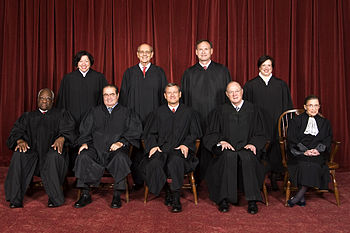By Ian Jones @IDJonesPhotog
We all know who Martin Luther King, Jr. was. Gloria Steinem proudly wears a “pussy hat” for women’s rights, and she’s 82! Most people know who Frederick Douglass was. If you’re from the bay area, you probably know Harvey Milk was San Francisco’s first openly gay person to hold office. The name Fred Korematsu is beginning to be recognized by more and more people.
All those names were, for the most part, pounded into our brains in school. In a previous column, I wrote how the disabled don’t really have a “Martin Luther King, Jr.” or “Malcolm X” figure. I neglected to mention Ed Roberts, possibly the closest there was.
Roberts contracted polio at age 14 and was the first student with a severe disability to attend classes at UC Berkeley in 1962, an unimaginably wheelchair-unfriendly time in American society. According to his archived obituary (he died in 1995) on the New York Times’ website, he was one of the founders of Berkeley’s Center for Independent Living. He headed the California State Department of Vocational Rehabilitation from 1975-1983 and helped found the World Institute on Disability. He was a real trailblazer, but I’ll bet that most of you never learned about him.
On what would have been his 78th birthday in January, he was honored with a Google doodle. Even I, a disabled person, had to hover the mouse over the doodle to find out who they were honoring. It’s a real shame that someone who has had such a big impact on American society is seemingly so anonymous.
He was a civil rights leader, but he’s arguably not as celebrated by mainstream society as the other names above. Outside of Berkeley, his name is relatively unknown.
People sort of, vaguely, remember him in October, which is national disabilities awareness month, lumped in there with legislation like the Americans with Disabilities Act and the Individuals with Disabilities Education Act, and then again on his birthday, but then he fades back out of the zeitgeist. I’m not sure that’s fair.
We spend a lot of time and money talking about diversity, but not so much on inclusivity when it comes to the disabled. It’s oversights like this that make me feel almost invisible – and that’s unfair to Roberts’ legacy. Things are undoubtedly better for the disabled today than they were when he enrolled as a student at UC Berkeley all the way back in 1962. And a lot of that’s due to his diligence.
If his name isn’t on par with the names above in the national consciousness, we’ve got to take a step back and ponder: Why? Why don’t we teach about this guy’s accomplishments in schools like we do George Washington Carver’s?
I think it’s something we should look at – because while the stigma of disability is fading, a lot of people think that having a disability equals not being able to be a productive member of society – and that notion is at least forty years out of date thanks to Ed Roberts — and probably many other near-anonymous people.



